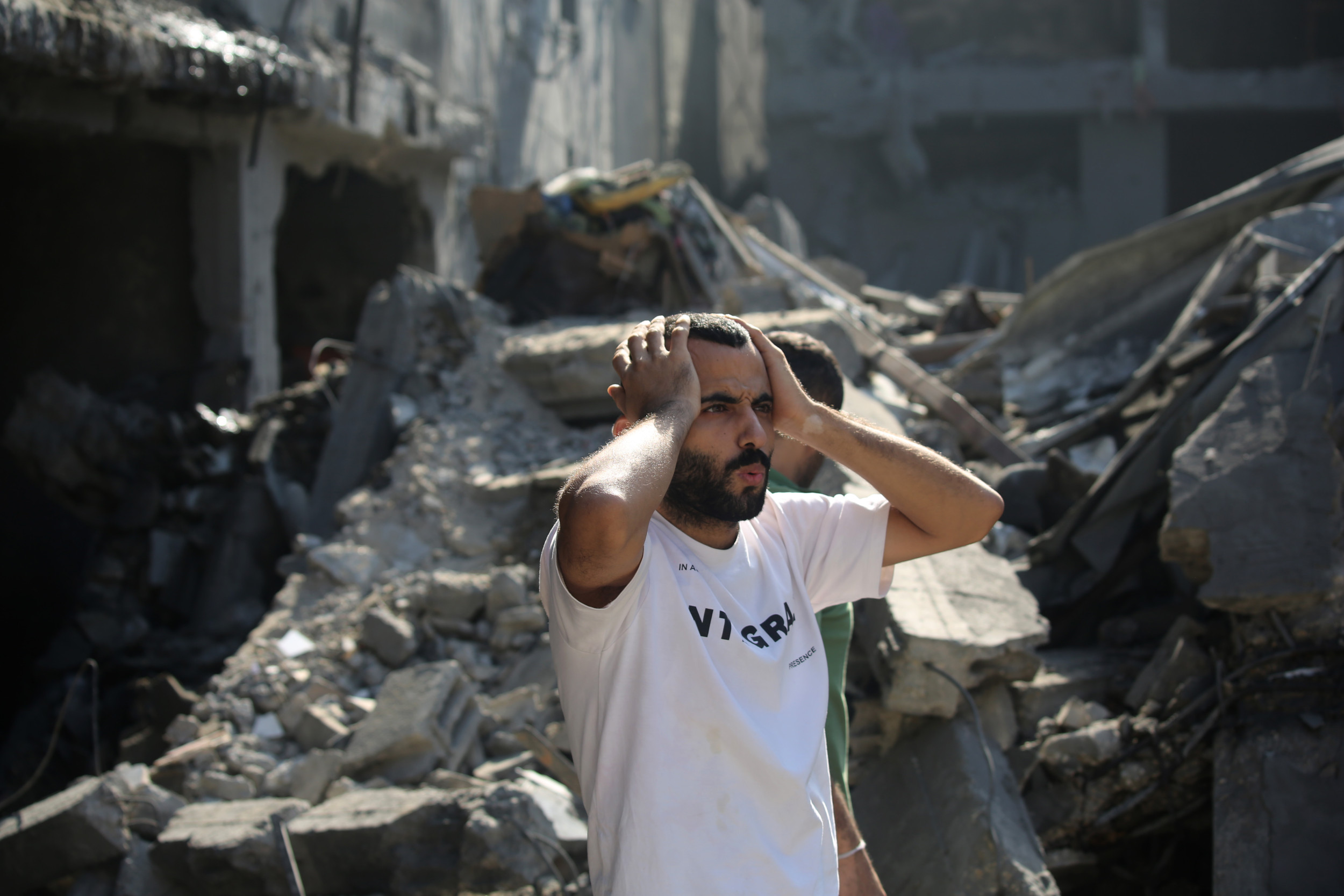The scale and brutality of Hamas’s grisly attack on Israel last Saturday, in which at least 1,300 Israeli men, women, and children were brutally murdered, has understandably triggered a massive outpouring of sympathy and solidarity with Israel from around the world, particularly in the United States, Europe and other western nations.
Meanwhile, Palestinians in Gaza are also dying in disturbingly large numbers. In response to the mass terror attack, Israel launched a massive aerial bombardment of Gaza, the most devastating the besieged enclave has ever seen. Already, 1,799 Palestinians have been killed, including 583 children, and 6,000 injured. Entire neighborhoods have been leveled, leaving over 423,000 internally displaced.
And yet, there has been no similar outpouring of sympathy for Palestinians. In fact, the U.S. and European powers have resisted formal calls for a ceasefire or even expressions of concern for Palestinian civilians, effectively giving Israel a greenlight to conduct its military operation as it sees fit. Even Israel’s decision to cut all water, food, fuel and medical supplies to Gaza—considered a grave war crime under international law and something western officials have elsewhere decried as “acts of pure terror”—elicited no protests from western governments and even occasional defenses.
Even public displays of sympathy or solidarity with Palestinian victims are considered beyond the pale, widely condemned by elected U.S. officials as “cold-hearted” or even pro-terrorist. In the zero-sum environment of U.S. politics, only Israeli victims are worthy of being acknowledged.
The message is clear—the lives, suffering and humanity of Palestinians are less worthy than the lives, suffering and humanity of Israelis. This basic inability of U.S. and other western officials to express empathy with Palestinians or acknowledge their suffering is both alarming and dangerous given what Israel is capable of and already carrying out on the ground.
President Biden in particular, whose sincere and heartfelt solidarity with Israelis has been palpable, has been conspicuous in his inability to express any sort of empathy toward Palestinians—something even George W. Bush managed to do during the worst days of the Second Intifada. More alarming still is the dehumanizing and even genocidal rhetoric from Republican leaders to “level the place” or referring to Palestinians “savages” that “have to be eradicated.” The facts that the attacks occurred in the context of the deep structural violence of a suffocating 16-year-old blockade and 56 years of Israeli military occupation, and all the indignities and deprivations they entail, are dismissed as irrelevant at best or moral equivocation at worst.
Indeed, we are told that there is no “moral equivalence” when it comes to the killing of innocents and the basic right to self-defense. While this is certainly true in principle, determinations of what is or is not considered “moral” are usually based less on the actions of the parties than on their identities. Thus, in Biden’s words, “terrorists…purposefully target civilians,” while democracies like the U.S. and Israel “uphold the laws of war.” In other words, Israelis, in contrast to Palestinians, are incapable of committing atrocities by virtue of who they are—an idea that is both ahistorical and fundamentally racist. Moreover, self-defense is not unlimited—as we know from Israel’s own record during this and previous conflicts, including indiscriminate bombings, reckless disregard for civilians, the use of prohibited weapons and other war crimes.
The current environment is especially ripe for atrocities given the unprecedented intensity of Israel’s ongoing assault on Gaza and the inflammatory rhetoric of an Israeli political and military leadership motivated by a combination of trauma, humiliation and a stated desire for “vengeance.” When the Israeli defense minister refers to two million Palestinians in Gaza as “human animals,” anything and everything becomes possible. Likewise, threats by Israel’s leaders to turn Gaza into a “deserted island” or that “Gaza will be city of tents,” should be taken seriously, particularly when Israel has both the means and the motive to deliver.
The lack of outrage over the recent Israeli order for the entire population of northern Gaza, more than a million people, to evacuate south of the strip, which many view as a step toward mass expulsion and a prelude to deliver on the promise to “flatten” Gaza, affirms the status of Palestinians as a “lesser than” set of humans.
American and European officials who see themselves as champions of liberal and egalitarian values will no doubt chafe at the suggestion that they place greater value on some lives over others. But how else are we to explain U.S. and EU indifference to Israel’s use of starvation as a weapon, or their ability to countenance the violent deaths of 500 children under the anonymized banner of “collateral damage”? Or to a 16-year blockade that, according to the United Nations, has already made Gaza “unlivable”? Or the ease with which inflammatory—and false—claims of decapitated babies and mass rapes were uncritically spread by U.S. and western media and officials, including the president himself.
Compassion and empathy are not zero-sum commodities, however. It is possible to grieve and honor the hundreds of Israeli women, children and men killed or injured in last Saturday’s brutal attack without simultaneously devaluing the lives, suffering and basic humanity of Palestinians. In fact, any effective response to the current crisis would demand that we do so.
Khaled Elgindy is the director of the Middle East Institute’s Program on Palestine and Palestinian-Israeli Affairs and an adjunct professor in Arab Studies at Georgetown University.
The views expressed in this article are the writer’s own.

